Plasma (4F0)
 An introductory look at electricity, which cannot normally be seen.
An introductory look at electricity, which cannot normally be seen.
Playing time: 4 min (V721)
|
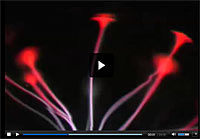
|
Plasma (4F0)
 Shows a plasma globe and what happens if you touch it with a finger, and how it interacts with electrical appliances.
Shows a plasma globe and what happens if you touch it with a finger, and how it interacts with electrical appliances.
Playing time: 4 min (V965)
|
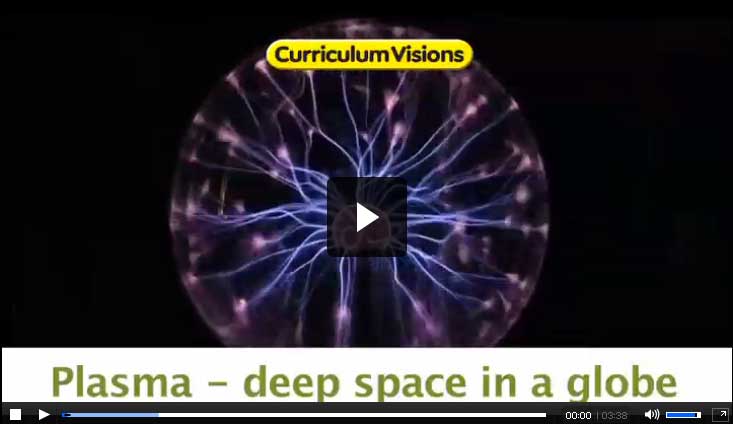
|
Using foil as a conductor (4F3)
 The simplest circuit using baking foil to make the connections and showing that it is the material, not the shape of it, which matters.
The simplest circuit using baking foil to make the connections and showing that it is the material, not the shape of it, which matters.
Playing time: 2 min (V722)
|
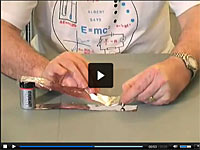
|
Using wires as a conductor (3F3)
 The same circuit, but using conventional wires to show that the circuit is a loop.
The same circuit, but using conventional wires to show that the circuit is a loop.
Playing time: 1 min (V723)
|
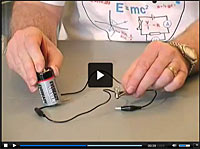
|
Component holders (4F4)
 Making a more formal circuit using component holders.
Making a more formal circuit using component holders.
Playing time: 1 min (V724)
|
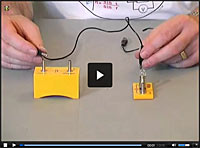
|
Simple circuit (4F5)
 A circuit with two cells matched to a 3V bulb.
A circuit with two cells matched to a 3V bulb.
Playing time: 3 min (V725)
|
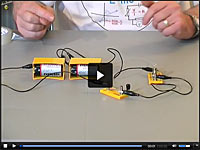
|

Playing time: 2 min (V726)
|
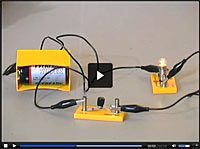
|
Playing time: 2 min (V727)
|
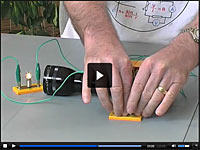
|
Circuits that won't work (4F8)
 Showing why it is important to make a circuit properly and some of the reasons a circuit will not work.
Showing why it is important to make a circuit properly and some of the reasons a circuit will not work.
Playing time: 3 min (V728)
|
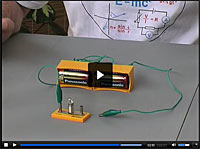
|
Series circuits (4F9)
 Putting a number of components into a series circuit.
Putting a number of components into a series circuit.
Playing time: 1 min (V729)
|
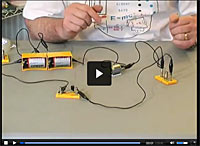
|
Testing for conductors (4F10)
 Using a circuit as a test instrument by relying on the property that a conductor will complete a circuit, while an insulator will not.
Using a circuit as a test instrument by relying on the property that a conductor will complete a circuit, while an insulator will not.
Playing time: 6 min (V730)
|
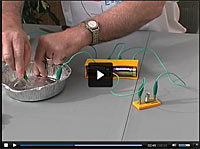
|
Filament
 How the filaments work inside different types of light bulb.
How the filaments work inside different types of light bulb.
Playing time: 2 min (V947)
|
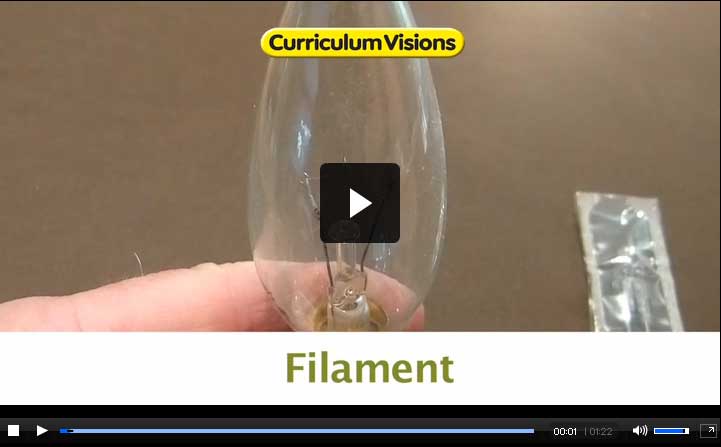
|
Spark
 Shows sparks produced when lighting a gas appliance.
Shows sparks produced when lighting a gas appliance.
Playing time: 1 min (V963)
|
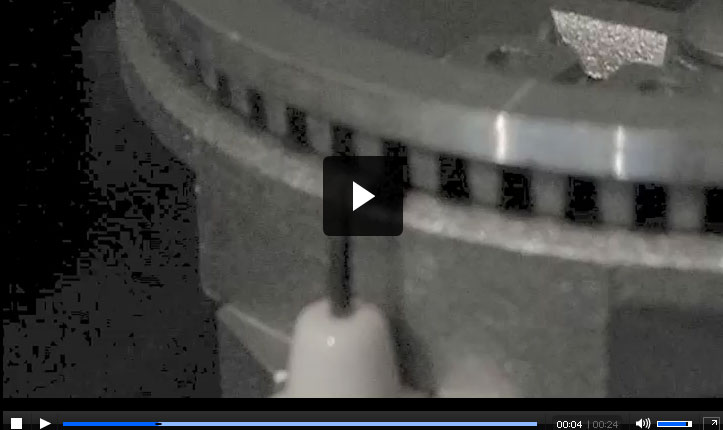
|












